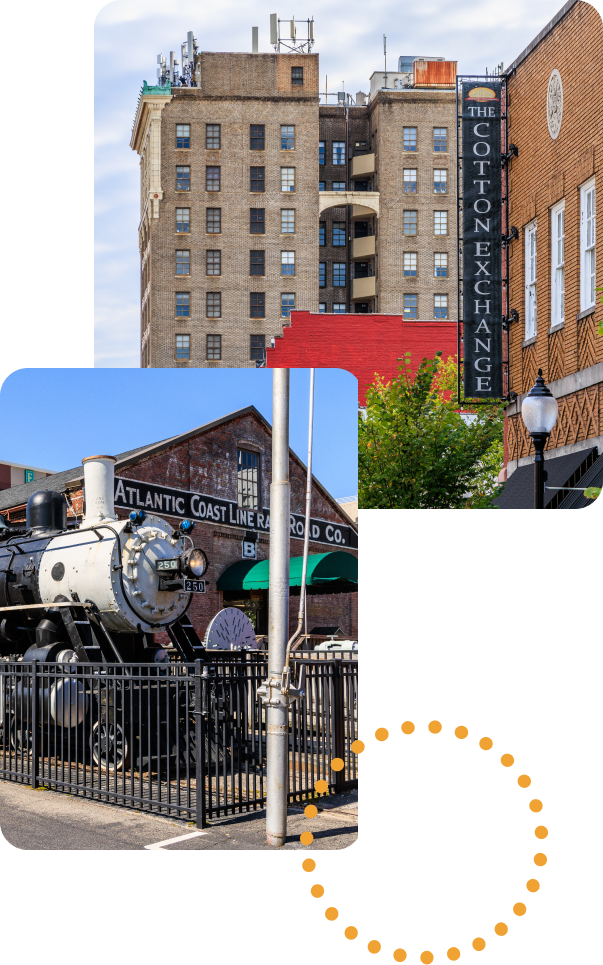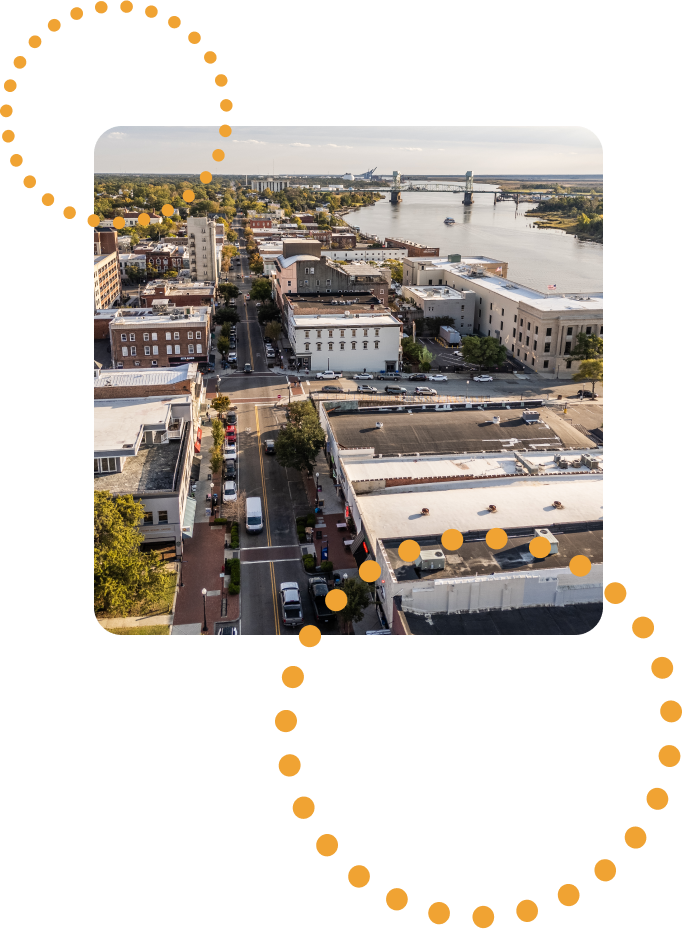Frequently Asked
Questions

What is the mission of the museum?
The Wilmington 1898 Museum is dedicated to preserving the history of the Wilmington massacre and coup, educating the public about its significance, and being a vehicle for community healing around this event and its subsequent impacts through history until the present. We aim to create a space for learning, reflection, and personal connections.
When will the museum open?
We are currently in the planning and development stages, with an anticipated opening in spring of 2028. Stay tuned for updates as we progress towards this exciting milestone.
Where will the museum be located?
The museum will be located in downtown Wilmington, North Carolina at Third and Davis Streets. Our goal is to create a space that is accessible to all members of the community and visitors from across the country. This site is directly adjacent to the Wilmington 1898 Memorial Park where the monument, dedicated in 2008, stands today.
Why is the Wilmington Massacre of 1898 important?
The Wilmington massacre and coup of 1898 was a violent event that overthrew a democratically elected, multiracial government. It marked a turning point in American history, leading to the disenfranchisement of Black citizens in North Carolina through Jim Crow and impacting the course of human and civil rights for decades. Our museum seeks to bring this untold history to light so the Cape Fear Region, North Carolina, and the nation can learn from the impact of the tragedy and heal the wounds left by it.
How can I support the museum?
There are many ways to support our museum project, from volunteering to donating. Visit our Support page for more details on how you can contribute to bringing this important history to the community and the nation.
How will the museum educate visitors about this history?
The museum will feature interactive exhibits that require physical engagement, such as motion-sensitive installations, virtual reality experiences, and hands-on activities. These features will be designed to make the learning experience dynamic and physically engaging, ensuring that visitors are not just passive observers but active participants. Our programs will be designed for visitors of all ages.
Will the museum offer educational programs for schools and groups?
Yes! The museum will offer a variety of programs designed for learning for students of all ages and learning abilities and modalities.

How can I contribute artifacts or documents related to the Wilmington Massacre?
What can I expect when I visit the museum?
Visitors will experience a thoughtfully curated collection of exhibits, interactive media, and personal stories that illuminate the history of the 1898 massacre and coup, its victims, and its legacy. The museum will offer both guided tours and self-guided experiences.
How is the museum funded?
The initial contribution of the land, the site where the museum will be located, is gifted by the Elizabeth L. Carter Foundation. Additional funding is a combination of private donations, grants, and community support. We are actively fundraising to ensure the sustainability of the project. If you would like to make a contribution, visit our Support page for more information.
How can I stay informed about the museum’s progress?
You can sign up for our email list or follow us on social media for the latest updates on our progress, events, and announcements. We’ll keep you informed on key milestones as we work towards opening.
How will the museum be committed to democracy, healing, and fairness?
The museum will host exhibits, forums, and educational workshops aimed at understanding democratic values and practices. We will facilitate dialogues that encourage active civic participation and the protection of democratic principles.
We are dedicated to healing the wounds of the past by creating a space for reflection and understanding. Through storytelling, commemorations, and interactive exhibits, the museum will provide opportunities for reconciliation and personal connection to historical events.
The museum will be committed to fairness by ensuring that the narratives of those most negatively impacted by the 1898 events are front and center. We will engage with community members to validate and integrate diverse perspectives into our exhibits and programs.

